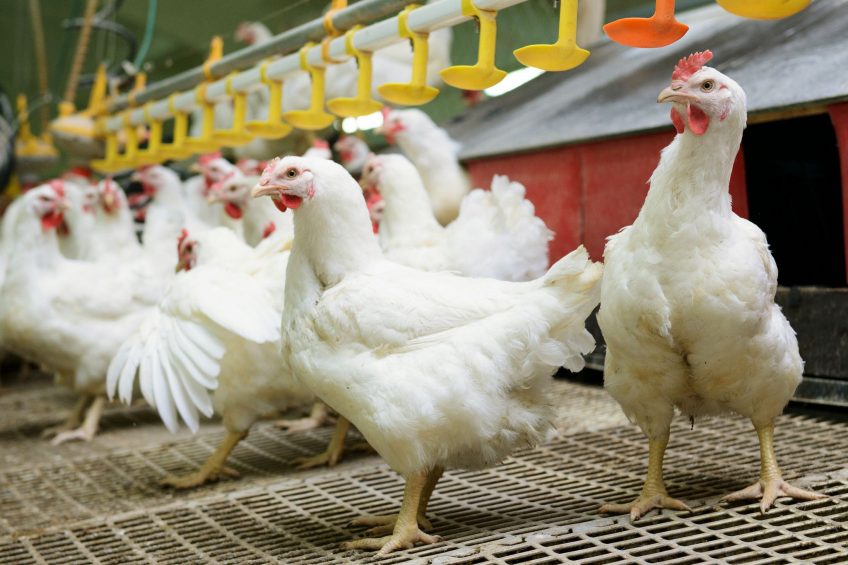Bristol University wins two poultry grants

Two new grants have been given to Bristol University’s Veterinary School, which will make use of the recently opened £1m CIEL poultry house.
The Innovate UK grants, totalling £160,000, cover studies that aim to further progress towards sustainable livestock production and improve broiler chicken welfare.
Dr Andy Butterworth, Reader in Farm Animal Science, will lead the £100,000 Bristol component of a £403,000 study entitled, “Lighting for Broiler Enhanced Welfare and Commercial Output.”
The collaborative project, involving Bristol researchers, Campden BRI and Greengate Lighting, aims to further develop and test the first ever bio-adaptive, circadian, smart lighting system for broiler chickens that will recreate the properties of natural daylight.
Around 65 billion chickens are reared globally every year for meat and eggs – the vast majority in completely enclosed, carefully managed, bio-secure environments.
Research has demonstrated measurable effects of light colour on animals, including changing food intake delaying sexual maturity and influencing behaviours, such as fear and aggression. Light is also vital for maintaining circadian (day/night) rhythm.
Current industry standard lighting is white LEDs with dim-to-blue or dim-to-red. However, these lights exhibit strong spectral (colour) peaks, so do not replicate natural daylight, offer no adaptive control opportunities and are based on extrapolation of limited scientific research. This project aims to validate an innovative bio-adaptive, circadian, smart lighting system.
Dr Butterworth said the project aimed to achieve a step-change in lighting for animal husbandry, enhancing productivity and animal welfare in the food production industry, both in the UK and globally.
“As the industry has grown, so too have consumer concerns for animal welfare. Natural daylight, while the ideal, is not practical in all parts of the modern farming industry. Lighting has been demonstrated to impact productivity and welfare in the poultry industry but only daylength and intensity and currently regulated to minimum standards.”
On-farm production of insect larvae
Meanwhile, Professor John Tarlton, Professor of Regenerative Medicine, will lead a £60,000 part of a £571,000 Innovate UK funded project that will examine the feasibility of on-farm production of insect larvae from food waste to be used as a feed component for chickens.
He said: “The global population is expected to increase to nearly 10 billion by 2050. Alongside other problems of climate change and reduced agricultural land availability, feeding the world’s population is one of the greatest challenges facing humanity.
“Insects are one of the most efficient converters of protein and are able to do this from non-human edible food waste, a resource, totalling 1.3 billion tonnes each year. Unfortunately, most people in the world are reluctant to eat insects.
“However, chickens, the world’s greatest producers of animal protein for human consumption, have no such sensibilities. Indeed, they are enthusiastic consumers of insects. The aim of the study is to assess nutritional, health and welfare outcomes in chickens which aims to advance progress towards sustainable livestock production, with an emphasis on animal health and welfare.”












